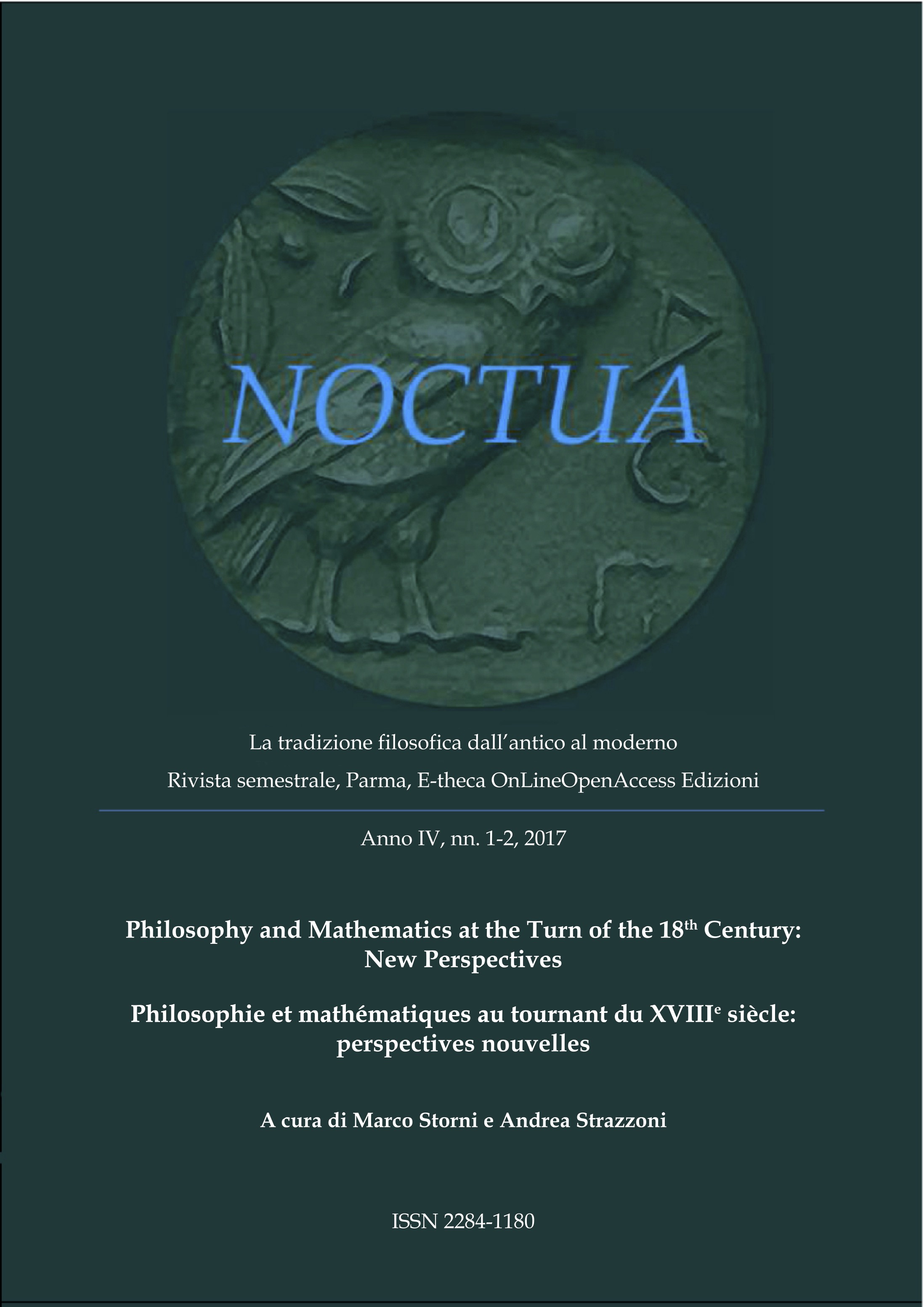Mathematisme et tourbillons dans les Principes de la Philosophie de Descartes
DOI:
https://doi.org/10.14640/NoctuaIV1Parole chiave:
cosmology, René Descartes, hypotheses, mathematics, Principles of PhilosophyAbstract
The theory of vortices seems to contradict Descartes’s willingness to accept in physics only “principles also accepted in mathematics”. We show that this cosmological theory is on the contrary (i) consistent with the Cartesian mathematical norm – explaining phenomena only by the properties that bodies have in common with mathematical objects – and (ii) partly implied by the thesis according to which the essence of matter consists of extension – circular motion being the only one allowing movement in a world saturated by a homogeneous extension. In this respect, the incoherence of the Principles of Philosophy resides rather in the gap between the claim to have “proved by mathematical demonstration” and in the fact that, to pass from the level of general principles to that of cosmology, Descartes sets up a series of auxiliary hypotheses concerning the genesis of the world.
##submission.downloads##
Pubblicato
Fascicolo
Sezione
Licenza
Noctua pubblica contributi Diamond Open Access secondo i termini della licenza CC BY / Noctua publishes Diamond Open Access contributions under the terms of the CC BY license.






